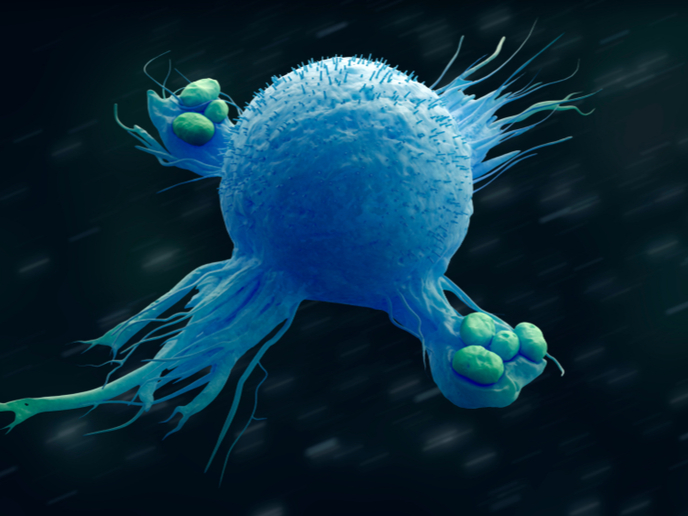Molecular determinants of T cell responses
Despite extensive efforts, the mechanisms driving improper T cell activation remain largely unknown. As effector T-cell responses are driven by competing positive or negative costimulatory signals, a deregulated balance between these signals may lead to chronic autoimmune inflammation. One of the best-described stress-recognizing receptors in NK cell biology is activating receptor NKG2D. Emerging evidence indicates that the expression of this receptor is more promiscuous, and is found on effector and memory CD8+ T cells, NKT cells and gamma/delta T cells, as well as in CD4+ T cells under pathological conditions. Interestingly, while NKG2D can clearly function as a co-stimulatory molecule in CD8+ T cells, its role in CD4+ T cells remains unclear. The EU-funded NKG2D-IMMUNO (The role of NKG2D in CD4+ T cell function and autoimmunity) project investigated the role of NKG2D receptor in CD4+ T cell function and differentiation. Using multicolour flow cytometry, researchers discovered that NKG2D was expressed on a proportion of CD4+ Th1 cells in various lymphoid and non-lymphoid organs. In addition, the de novo induction of NKG2D expression on naïve CD4+ T cells was associated with higher levels of interleukin-10 (IL-10) in IFNgamma-producing Th1 cells. To identify the molecular basis of NKG2D-mediated cytokine expression, researchers performed global transcriptome analysis on NKG2D+CD4+ Th1 cells. They identified the transcription factor Blimp-1 as a differentially regulated candidate gene. From a functional perspective, NKG2D co-stimulation in combination with CD3 was required to enhance IL-10 production. Furthermore, in vivo studies revealed the presence of NKG2D+ Th1 cells in inflammatory conditions, and these cells were particularly enriched in IL-10/IFNgamma co-producing cells in the model of anti-CD3 induced tolerance. Overall, the results of the study support a role for NKG2D in modulating cytokine expression and possibly in inducing the regulatory features of Th1 cells. NKG2D could serve as the therapeutic target for chronic inflammation and autoimmune conditions that involve the modulation of pathogenic CD4+ T cells.







